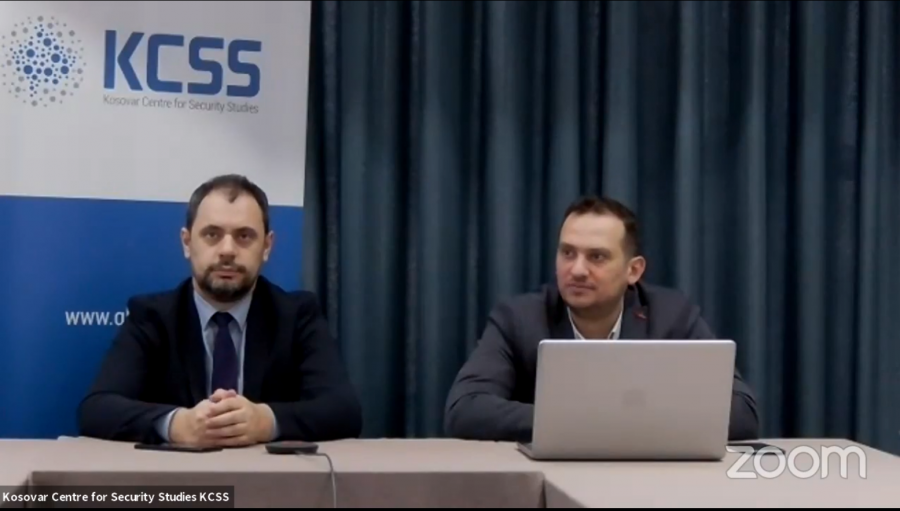1/02/2021

Kosovar Centre for Security Studies (KCSS) published today, on February 1, 2021 the report "Perception on Kosovo - Serbia Dialogue and Identity issues" through a virtual conference. The report presents the results of the survey conducted in Kosovo and Serbia on citizens' perceptions in both countries regarding the Kosovo-Serbia dialogue in the framework of the Western Balkan Security Barometer survey. .
According to the results, the majority of citizens of Kosovo (68%) and Serbia (51%) support the dialogue process, however they have diametrically opposed perceptions of the achievements of the dialogue. While the majority of Kosovo citizens believe that the purpose of dialogue is mutual recognition within existing borders (77%), in Serbia there is a perception that the purpose of this process is to return Kosovo to Serbia with wider autonomy (48%).
Respondents in Kosovo and Serbia mainly have negative perceptions about the dialogue process, the transparency of this process and its impact. Therefore, the majority of citizens of Kosovo (77%) and Serbia (82%) think that the dialogue lacked transparency, that nothing has changed in the relations between the two countries (60% in Kosovo, 71% in Serbia) or that themselves citizens did not benefit from the process (80% in Kosovo and 92% in Serbia). This indicates a significant lack of transparency and communication of the EU, but also of the governments of Kosovo and Serbia with the citizens of both countries.
The citizens of Serbia are pessimistic compared to the citizens of Kosovo about the future of relations between the two countries. The majority of Serbs (63%) do not expect to see the normalization of relations with Kosovo Albanians regardless of the outcome of the dialogue, while the citizens of Kosovo (43% of them) are more optimistic on the condition that relations with Serbia will be normalized only if an agreement is reached. Serbian. Moreover, almost the majority of Kosovo citizens (48%) think that a final agreement with Serbia will be reached within the next 3-5 years, while more than half of respondents in Serbia (53%) stated that the agreement with Kosovo will never be achieved.
On the other hand, Kosovar respondents were categorically against the idea of exchanging territories (89%) and the establishment of the Association of Serb-majority municipalities (83%). In addition, the majority of respondents (58%) have no knowledge of what the idea of Mini Schengen is and consequently most of them are against the creation of Mini Schengen (53%). In case of failure to reach an agreement with Serbia, more than half of respondents (70%) said that this would have negative consequences for Kosovo. Whereas, about 80% of the respondents think that for Kosovo's membership in the EU it is necessary to reach an agreement with Serbia.
The Western Balkan Security Barometer was conducted on September 25 - October 2, 2020 and surveyed 1,132 citizens over the age of 18 in all regions of Kosovo. In Kosovo, the project is being implemented by the Kosovar Centee for Security Studies (KCSS) and in Serbia by the Belgrade Centre for Security Policy (BCSP) with support of the National Endowment for Democracy (NED).
You can watch the publication of the findings HERE
The report can be found below in three languages: Albanian, Serbian and English.
Perception on Kosovo - Serbia Dialogue and Identity issues
Perceptimet e qytetarëve në Kosovë dhe Serbi për Dialogun Politik dhe Identitetin
STAVOVI GRAĐANA NA KOSOVU I U SRBIJI O POLITIČKOM DIJALOGU I IDENTITETU